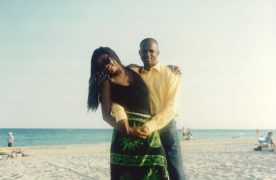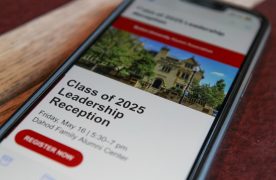As some of my readers know, I am afraid of being alone. This weekend, for example, when I was worried that I had missed the last train of the night, I started talking to the woman next to me on the platform bench.
The conversation started off innocently. We talked about our families. She told me that she was related to Christopher Marlowe, and that he faked his death and fled to Scotland. When I told her that I was pretty sure that Marlowe was killed in a bar fight, she told me that Francis Bacon wrote all of Shakespeare’s plays.
She gave me some little of vials of a health supplement. She told me the supplement was made out of the first plant that grew back after the atomic bombs were dropped on Hiroshima.
Then she told me that this group called the Synagogue of Satan had funded and created the atomic bomb. She told me that Jewish people had planned the last three world wars. She said that there couldn’t have been a Holocaust because there were only one million Jewish people in Europe at the time. She said Jewish people actually killed six million people during the Holocaust, not the other way around. She told me that she and her father were targeted four days after JFK’s assassination.
She told me that I could find all this information on Google, but not Amazon, because Amazon pulled all those books off its site.
While she was telling me all this I texted my brother, “Please call me now. Crazy person. Help.”
He called me, and we pretended to have a conservation about him meeting me at a different train stop so I could get away from this person. The woman eventually got off the train and waved goodbye to me. I sat there and felt my hands shaking. I barely could speak on the phone.
Most people are probably wondering why I didn’t say anything. Isn’t it the right thing to tell people when they are saying objectively wrong and maybe even harmful things?
The reason I didn’t say anything was that I couldn’t. I was too scared to even speak. I (rationally) thought that if this woman was delusional enough to believe in all these objectively wrong theories, then she could very well be dangerous.
Conspiracy theories arise for two reasons. The first is that people naturally think there are discernable causes behind everything. The cause of the broken plate on my kitchen floor is my clumsiness, for example. But interestingly, a lot of things happen randomly. People die of sudden illnesses all the time. There are also things such as literal coincidences. While coincidences can be broken down a long line of narrowers, they do happen. (I ran into my friend Austin from my previous university in Washington, D.C. in the GSU. He was visiting some friends at BU and I also happened to be in the GSU taking a health survey to get a $10 Amazon gift card. It was just a coincidence that we ran into each other. And it was also completely random that I ended up dropping and losing the Amazon giftcard one minute after getting it. Maybe the cause of that was my clumsiness… whatever.)
The second reason they arise is because the truth is hard to accept sometimes. A lot of Americans have a hard time accepting that Lee Harvey Oswald killed John F. Kennedy. The truth that an insane person decided one day to kill the president is a lot harder to accept than the idea that there was a conspiracy behind it all. Some events just seem too perfect.
Living in a democracy complicates matters even worse. We do need basic confidentially to protect people. But sometimes this secrecy appears to be done to hide something. Eventually, people think there is a conspiracy against them.
It also doesn’t help that there are literal political conspiracies do actually happen. If you have read “Dark Money” by Jane Mayer, you know what I’m talking about.
Now I do believe deep down we are all skeptical. We need to be a little skeptical or else we will fall for everything. But the problem with being too skeptical is that you end up not believing anything. You become antisocial and will inevitably find information that backs up your paranoid worldview. And then you’ll end espousing these views to op-ed columnists on the T, who will end up therapeutically writing about it in a column.
Conspiracy theories hold a special place in U.S. culture. But we can’t move on as a society if we can’t trust each other.










